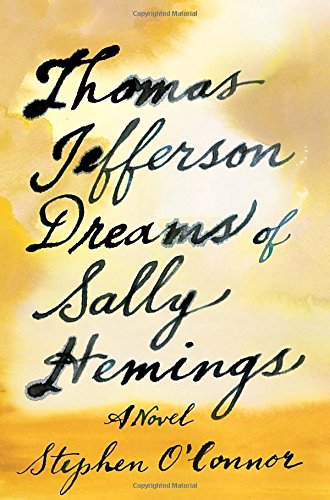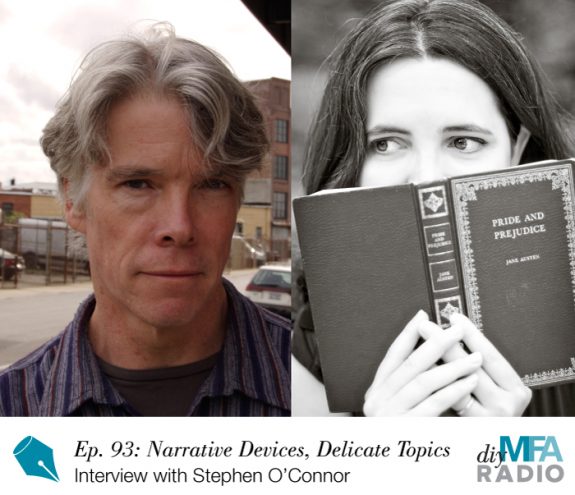Hey there Word Nerds! I’m so glad you’re here.
Today’s interview will be a juicy one. I’ll be talking to Stephen O’Connor about his debut novel Thomas Jefferson Dreams of Sally Hemings, a profound exploration of the ways in which the institution of slavery warped the human soul, as seen through the story of Jefferson and Hemings. In this episode, we discuss how to approach controversial topics in your writing while treating the subjects with grace and respect.
In this episode Stephen and I discuss:
- Mindful writing about controversial topics and marginalized groups
- Idea evolution from short story to novel
- Writing outside your experience
- Accessing the unconscious mind as part of the writing process
- Issues of point of view
Plus, Stephen’s #1 tip for writers.
Resources
About Stephen O’Connor
Stephen is the author of two collections of short fiction, Here Comes Another Lesson and Rescue, as well as Orphan Trains, an acclaimed history of a pioneering nineteenth-century child welfare effort, and Will My Name Be Shouted Out, a memoir. His fiction has appeared in many publications, including The New Yorker and The Best American Short Stories. He lives in New York City and teaches at Sarah Lawrence.
About the Book
 Historians have shed invaluable light on the relationship between Thomas Jefferson and Sally Hemings, yet their internal feelings and motivations remain a mystery. In Thomas Jefferson Dreams of Sally Hemings, O’Connor’s protagonists are rendered via scrupulously researched scenes of their lives in Paris and at Monticello that alternate with a harrowing memoir written by Hemings after Jefferson’s death, dreamlike sequences in which Jefferson watches a movie about his life, and a chance encounter where Hemings and Jefferson run into each other “after an unimaginable length of time” on the New York City subway.
Historians have shed invaluable light on the relationship between Thomas Jefferson and Sally Hemings, yet their internal feelings and motivations remain a mystery. In Thomas Jefferson Dreams of Sally Hemings, O’Connor’s protagonists are rendered via scrupulously researched scenes of their lives in Paris and at Monticello that alternate with a harrowing memoir written by Hemings after Jefferson’s death, dreamlike sequences in which Jefferson watches a movie about his life, and a chance encounter where Hemings and Jefferson run into each other “after an unimaginable length of time” on the New York City subway.
O’Connor eschews easy answers, aiming to illuminate the horrors of slavery and the hypocrisy of the Founding Father who wrote “all men are created equal,” while allowing both Hemings and Jefferson their full human complexity. Jefferson—at once admirable and despicable—becomes a vehicle for understanding a destructive imbalance of power that persists today. Hemings emerges as a powerful force, asserting her right to freedom of body and mind.
To learn more about Stephen O’Connor, visit his website or follow him on Facebook.
Link to Episode 93
(Right-click to download.)
If you liked this episode…
Head over to iTunes, leave a review, and subscribe so you’ll be first to know when new episodes are available. Also, if you know anyone who might enjoy this podcast, please share!
Until next week, keep writing and keep being awesome.








